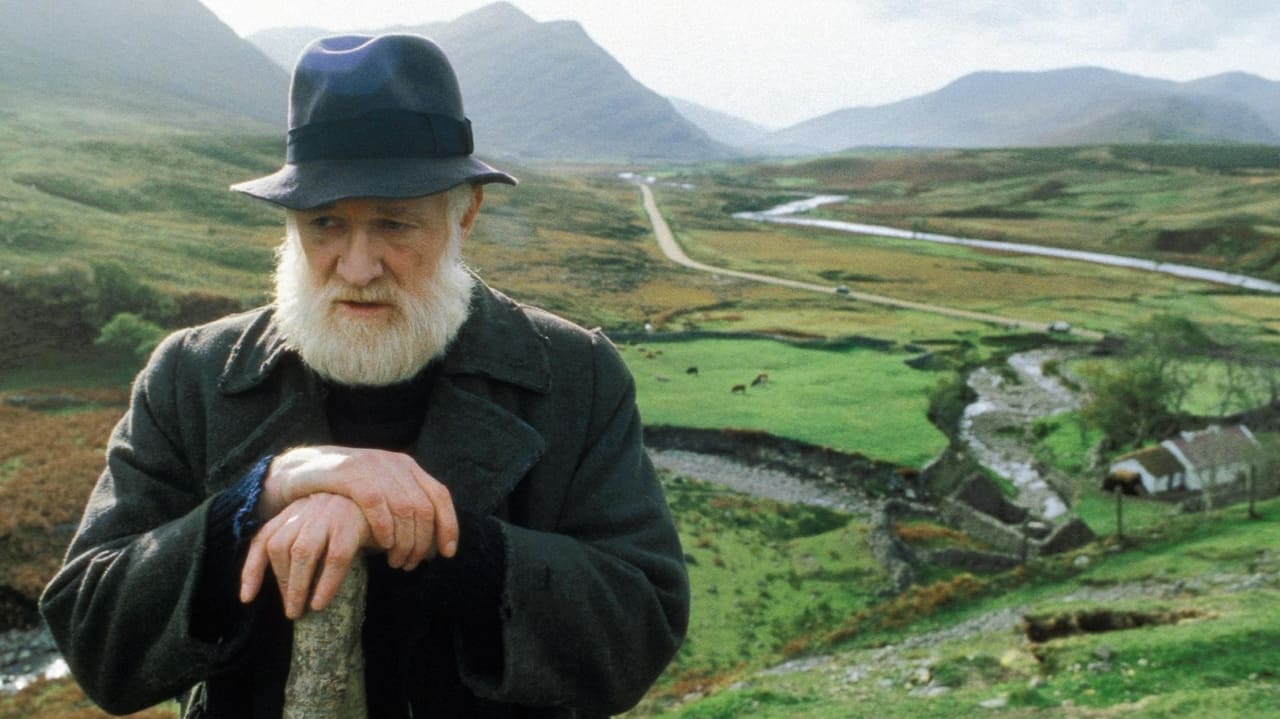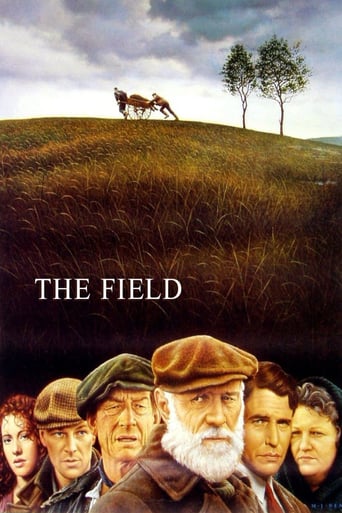

One of my all time favorites.
... View Morenot as good as all the hype
... View MoreThis film is so real. It treats its characters with so much care and sensitivity.
... View MoreThe story, direction, characters, and writing/dialogue is akin to taking a tranquilizer shot to the neck, but everything else was so well done.
... View MoreThe beginning scene where this guy is stuffing his face like a dumb animal. WHO eats like that??? pretty dumb.. Whenever I see someone eat like that, I think they cannot be too intelligent, because that's how dogs eat. Why would they cast a retard like this guy who eats like a dog. I just cannot get over that scene.
... View MoreIn 1959 an unsolved murder case in Kerry took an unusual twist. The previous November a bachelor farmer named Maurice Moore had been found strangled to death. It says a lot about the distance between community ritual and forensic investigation at the time that, the evening his body was discovered in a ditch, a wake was held in Moore's home in Reamore, at which visitors roamed freely through his house. The following day detectives from Dublin arrived to fingerprint the house. "The whole place could have been found guilty," one local joked.Actually, there was just one suspect. Moore had been due to appear at Tralee Circuit Court a month later after a boundary dispute with his neighbour, Dan Foley. Moore had already told the Garda that Foley had begun to follow him home at night. Photographers camped outside Foley's home in the expectation of seeing him led away in handcuffs. He never was.With insufficient evidence against Foley the case had gone cold the following year when the bishop of Kerry, Dr Denis Moynihan, made an extraordinary plea for information. For leverage he decreed that crimes connected to land disputes were now "reserved sins" in the parishes of Ballymacelliot and Tralee, meaning that only he and his deputy could absolve them. This was a sort of good cop-God cop routine: come forward or risk damnation. It was, as one person described it in Gus Smith and Des Hickey's book, John B: The Real Keane, a frightening development. "It was the kind of extreme action that struck fear into the people of these parishes." And still nothing.Were there any justice in the world John B Keane would never have written The Field, a play about a world without any justice. (A 50th-anniversary production is playing at the Gaiety in Dublin.) The events inspired Keane to write the drama of Bull McCabe, a fearsome tenant farmer whose plans to fix an auction for the field he has long farmed are scuppered by an outside bidder, and whose fatal retaliation holds consequences for his village, his besieged conscience and the frustrated law of God and man.Can the dramatisation of unsolved crimes and miscarriages of justice bring closure? Keane had his own qualms of conscience when writing the play. It was produced, finally, seven years after the events that inspired it, and a few years after Foley himself had died an isolated and shunned man, still protesting his innocence. (His nephew John Foley has continued to defend him and is quoted in a new programme note by Billy Keane, John B's son.) There is an agony in such immortality; to never be found guilty, to never be found innocent, to be eternally on trial.Something strangely similar happened with a new play by Peter Gowen that recently concluded a national tour. The Chronicles of Oggle, a solo performance, is a history of dispossession and abuse in a priest-ridden Ireland whose details are depressingly familiar. So much so, in fact, that Gowen's play reads like a formula.His protagonist, Pakie, moves quickly from his home to the beatings and molestations of a Christian Brothers industrial school and then into an adulthood of resistance and divided communities. But it is also based on a true story, that of a childhood friend who died by suicide in his late 30s after a life scarred by sexual abuse.The "Oggle" of the title is a not-so-veiled reference to Gowen's native Youghal, where the play premiered in 2013. Shortly before it was due to return to the town for the tour, though, its dates were cancelled by the local promoters, who cited complaints from "unnamed sources".That may sound like censorship or a publicity boon – the story became part of the production's marketing material – but either way it lends heft to Pakie's distinction between a singular observer and a timid community: "Two eyes sees all. Ten thousand eyes sees nothing." All of this made it fascinating to read, in these pages, about the musician Cormac Breatnach's intention to make a stage performance based on the wrongful conviction of his brother, Osgur, for the 1976 Sallins train robbery. My colleague Peter Murtagh's article described it as "something of an exorcism" for Breatnach, whose formative years were affected by the miscarriage of justice.Theatre deals with conflict, with trauma and, ideally, with catharsis: you plunge into the depths in order to resurface, with luck, feeling shaken but cleansed. But theatre is ill equipped to bring much of anything to a conclusion. When Donal O'Kelly's play Ailliliú Fionnuala imagined the trial of an oil executive behind the Shell Corrib gas project in Rossport it seemed like wishful thinking for protesters, a reminder that any real-life reckoning was just a pipe dream. The laws of theatre are curious things, endlessly argued.To imagine something may be the first step to bringing it into being, but to witness a fantasy of justice in an unaccountable world seems like simple, perhaps dangerous, placation. It's hard to stage a conflict resolution. An audience in Youghal, for whatever reason, can always look away. After more than half a century a murder suspect is still in the dock. Understand the People, the history, the way of life at the time. this movie shows some of the way we had to life, whether right or wrong . . as an proud Irish person (sometimes we fu** up too) i am not proud of some of our past ' governments,the Catholic church,starvation, but it is our pain, it makes us who we are, Brave movie to make in Ireland .
... View MoreThe church and the state will steal your property and use it to enslave your neighbours. Praise them and pay them so that they can do this, otherwise you may feel a little bit bad about yourself because some stupid A$$hole told you to.Die so that the machine may build a civilization (an inherently unsustainable and catastrophically destructive series of blocks requiring the importation of resources) where taxation runs around 40% and nobody owns anything due to eminent domain laws. This is so much better than feudalism! I will only pay if you force all of my neighbours to pay as well, that way it's fair!F the world depicted in this movie but f the world we're living in now even more. I'll take 1000000 dead donkies over the life of a good, honest, hard working upstanding man.
... View MoreThe Field is the second film directed by Jim Sheridan and falls among his brilliant early works such as My Left Foot and In the Name of the Father. The film, based on a play by John B. Keane, takes place in an Irish village in 1920s. It focuses on the life of "Bull McCabe" and his efforts to buy the field that he works on. His family has lived for generations in this village and he wants to leave the field as his legacy to his son, and his son after him, and so on. As a hardworking and honest man, we come to admire him. But things take a turn for worse when the field becomes more important than anything for him, even more important than himself. And he fights fiercely to get the field, without considering what this fight might cost him and his family. His traditional thinking is also challenged by the appearance of a rich American, who has returned to him homeland to buy the lands and begin a major industry there.Richard Harris, who plays Bull McCabe, was nominated for an Oscar while John Hurt was also nominated for BAFTA for playing "Bird" in the film.
... View More